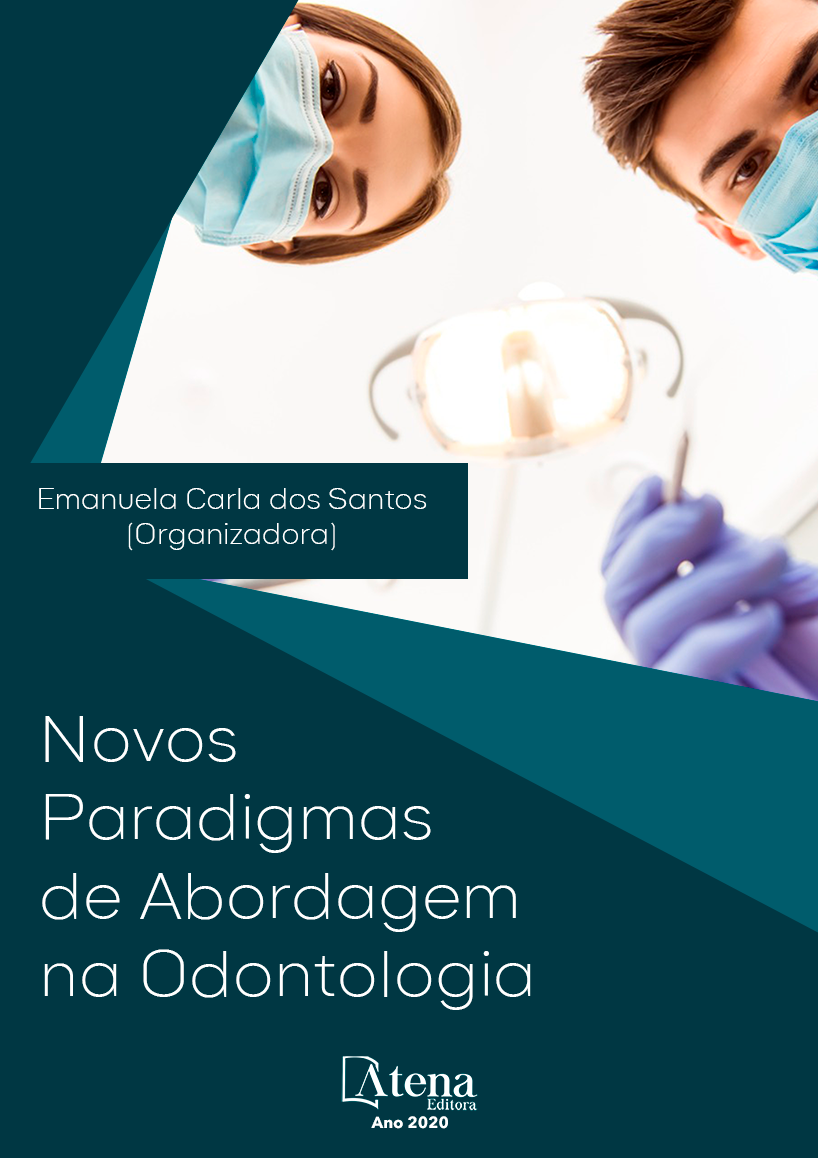
COMPORTAMENTO BIOMECÂNICO E ADAPTAÇÃO DE PILARES PROTÉTICOS ANGULADOS SOB TESTES COMPRESSIVOS E CICLAGEM MECÂNICA
O presente estudo teve por objetivo realizar uma busca bibliográfica para avaliar a influência da ciclagem mecânica e de cargas compressivas quanto a adaptação e a ocorrência de falhas sobre pilares protéticos angulados de implantes HE, com e sem cinta metálica. Foi realizada uma busca bibliográfica nos principais bancos de dados de saúde PUBMED e Scholar Google, no qual coletou-se trabalhos que foram publicados de 2006 a 2020. Foram inclusos estudos laboratoriais, relatos de casos, revisões sistemáticas e revisões de literatura, que fossem desenvolvidos em indivíduos vivos. Logo, foram excluídos artigos que não tratavam a respeito da influência da ciclagem mecânica e de cargas compressivas quanto a adaptação e a ocorrência de falhas sobre pilares protéticos angulados de implantes HE, com e sem cinta metálica. Os tipos de pilares e os métodos de fundição podem influenciar na adaptação implante/pilar protético. Os pilares calcináveis podem apresentar ou não cinta metálica na região de adaptação com o implante e a fundição pode ser por indução ou pela técnica convencional da cera perdida. A ciclagem mecânica pode aumentar a desadaptação na interface implante HE/pilar protético angulado 25° e reduzir a resistência à compressão dos conjuntos implantes HE/pilares protéticos UCLA calcináveis sem e com cinta metálica. Os modos de falha predominantes em ambos os tipos de pilares, submetidos ou não à ciclagem mecânica, foram a deformação plástica, sem fratura, do parafuso do pilar e a desadaptação do pilar.
COMPORTAMENTO BIOMECÂNICO E ADAPTAÇÃO DE PILARES PROTÉTICOS ANGULADOS SOB TESTES COMPRESSIVOS E CICLAGEM MECÂNICA
-
DOI: 10.22533/at.ed.8502002042
-
Palavras-chave: Prótese Dentária Fixada por Implante; Implantes Dentários; Sobrevivência.
-
Keywords: Dental Prosthesis, Implant-Supported; Dental Implants; Survivorship.
-
Abstract:
The present study aimed to perform a bibliographic search to evaluate the influence of mechanical cycling and compressive loads on the adaptation and the occurrence of failures on angled prosthetic abutments of EH implants, with and without metallic band. A bibliographic search was conducted in the main health databases PUBMED and Scholar Google, and was collected articles published from 2006 to 2020. It was included laboratory studies, case reports, systematic reviews and literature reviews, which were developed in living individuals. Therefore, articles that did not deal with the influence of mechanical cycling and compressive loads on adaptation and the occurrence of failures on angled prosthetic abutments of EH implants were excluded. Abutment types and casting methods can influence the implant/abutment adaptation. The calcinable abutments may have a metallic band in the region of adaptation with the implant and the casting can be by induction or by conventional lost wax technique. Mechanical cycling can increase the mismatch in the interface of EH implant/angled prosthetic abutment 25° and reduce the compressive strength of EH implant/prosthetic abutments UCLA calcinable without and with a metal band. The predominant failure modes in both types of abutments, whether or not subjected to mechanical cycling, were the plastic deformation of the abutment screw, without fracture, and the mismatch of the abutment.
-
Número de páginas: 21
- John Eversong Lucena de Vasconcelos
- Victor Archeti Vardiero
- Dimas Novais de Araújo Júnior
- Marco Antonio Bottino
- Renato Sussumu Nishioka
- Eliane Maria Gonçalves Moreira de Vasconcelos
- Bruna Caroline Gonçalves Vasconcelos de Lacerda
- Daniel Sartorelli Marques de Castro
- Jozely Francisca Mello Lima
- Guilherme da Rocha Scalzer Lopes
- Leonardo Jiro Nomura Nakano
- Jefferson David Melo de Matos


